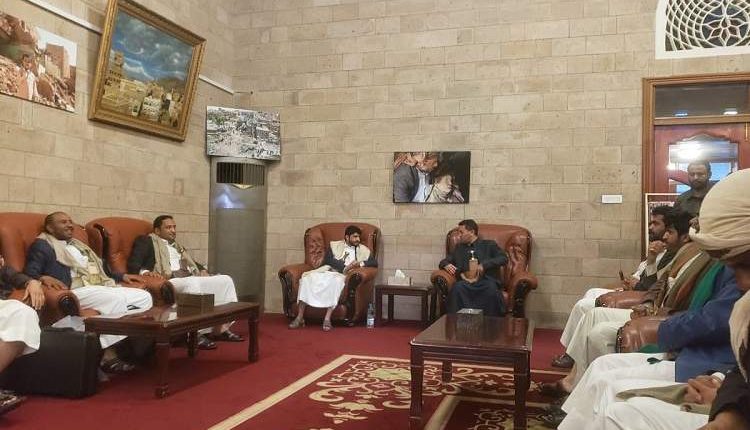National Committee for Prisoners Affairs Signs Last List for Prisoners’ Exchange with Saudi Side
The head of the National Committee for Prisoners Affairs, Abdulqadir Al-Murtadha, stated that correction of the prisoners’ data with the Saudi side has been completed, and the last list for the exchange has been signed.
He pointed out that the visit of Yemeni delegation to the Saudi prisons was successful, as our prisoners were reassured, noting that this visit was necessary and was called for in the last round of negotiations in Amman to solve the outstanding problems that prevented progress in the prisoners’ issue and the implementation of the agreement concluded last March.
He stressed that the prisoners’ issue is a humanitarian issue and must remain neutral from other political and military issues, and that all parties benefit from the implementation of this agreement.
Al-Murtadha expressed the hope that this visit would be a first step leading to the full implementation and comprehensive solution of this humanitarian issue.
On Wednesday, the head of the National Committee for Prisoners Affairs, Abdulqader Al-Murtadha, revealed that a Saudi technical delegation has arrived in Sana’a, and a delegation from the Prisoners Committee has gone to Saudi Arabia, to verify the names of the prisoners within the mechanism for verifying the statements of the first stage of the exchange that was agreed upon in the Jordanian capital, Amman.
In a tweet, Al-Murtadha stated, “Within the mechanism of verifying the statements for the first stage of the release of prisoners, which was agreed upon in the last negotiations in Amman, a technical delegation from the Prisoners Committee went to Saudi Arabia, while a Saudi technical delegation arrived in Sana’a.”
The head of the Prisoners’ Committee stressed that the delegations’ visits to Riyadh and Sana’a are to verify the names and match them to reality, stressing that these visits are not engaged to any other political dialogue.
In August, the National Committee for Prisoners Affairs confirmed its readiness to implement the prisoner exchange deal that was agreed upon last March under the auspices of the United Nations.
The head of the committee, Abdulqader Al-Murtada, explained that the results of the last round of negotiations, which were held in Amman, were not as positive as hoped, according to (Saba) agency.
He said, “We had great hope for implementing even part of the deal that was agreed upon last March, but due to the delay of the US-Saudi mercenaries in Marib in providing the names, they prevented any implementation of this deal or part of it.”
The head of the National Committee of Prisoners stressed that the prisoners’ issue is a humanitarian one, and the committee deals with it from this point of view, indicating that it is followed up by the leadership of the revolution, in order to reach the implementation of this agreement, and liberating all prisoners.
He said, “We are keen to free all our prisoners, and this issue should not be subjected to leniency at all.”
Al-Murtada expressed the hope that the United Nations would take more serious and positive steps to pressure the other party to implement what was committed and agreed upon.
He added, “We affirm that there is absolutely no delay on our part in implementing this agreement,” pointing out that the National Prisoners’ Committee had received promises from the UN that there would be progress in the coming weeks, and more positive steps to implement this agreement.

